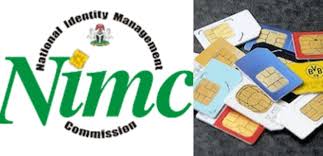
NIMC, NIBSS, others roll out digital cards with multiple wallets
In order to promote financial inclusion and boost Nigeria's GDP, the National Identity Management Commission (NIMC), the Nigeria Interbank Settlement Systems (NIBSS), AfriGO, and other stakeholders have finalised plans to introduce digital cards with multiple wallets.
It is anticipated that Nigerians will be able to access government services across all Ministries, Departments, and Agencies (MDAs) via these multi-wallet smart cards. They will also offer channels for students to obtain government loans.
Speaking to reporters in Abuja, NIMC's Director General/Chief Executive Officer, Engr. Abisoye Coker-Odusote, said that the biometric NIMC-enabled cards have several features that are intended to meet the socioeconomic needs of Nigerians in accordance with President Bola Tinubu's eight-point agenda.
The managing director/CEO of AfriGO, Mrs. Ebehije Momoh; the managing director/CEO of NIBSS, Mr. Premier Oiwoh; and the managing director of Data Mining Company, Mr. Femi Akande, provided assistance to Engr. Coker-Odusote.
She clarified that because President Tinubu wants to use digital identity verification as a vital platform to accomplish his welfare initiatives, stakeholders were gathered to discuss the numerous advantages of digital cards for Nigerians and their overall influence on the economy.
The head of NIMC added that the multipurpose cards would be accessible to lawful residents as well as citizens in Nigeria and the diaspora. These cards might be used for a number of things, such as shopping, commuting, and paying for utilities and water bills.
She clarified that the digital cards could be used both online and offline to support businesses in need of government aid and to offer services to rural residents who are not banked. She underlined that Nigerians would have the opportunity to obtain government assistance and services without requiring political connections.
Engineer Coker-Odusote added that the digital cards' numerous security measures prevented them from being counterfeited. She emphasised that they were created to address the government's present requirements, guaranteeing that no phantom recipients of government loans, palliatives, and other benefits exist.
Though state governments and the private sector would actively participate in the cards' implementation, she promised that they would greatly strengthen the economy by enhancing tax production and raising the nation's GDP, as state governments and the private sector would actively participate in the initiative.
Speaking on behalf of other stakeholders, the CEO of AfriGO, Mrs. Ebehije Momoh, said the launch of the cards would transform Nigeria’s economy by ensuring that the flow of money remains within the country.
“The digital card is a domestic solution to drive financial inclusion, enhance cost-effectiveness, and promote transparency within the system. It will ensure data sovereignty and autonomy, and we all know that data is crucial for economic growth,” she stated.
"This card will assist in cutting expenses, especially those related to foreign exchange that banks incur. Government welfare and social assistance programs depend on domestic payments. Additionally, it will guarantee that our money stays in the economy and advance the cashless policy.
About 26 banks are currently issuing the cards, and more are anticipated to follow. Being the first nation to implement this innovation, Nigeria will surely benefit the nation's micro, small, and medium-sized businesses (MSMEs), she continued.





